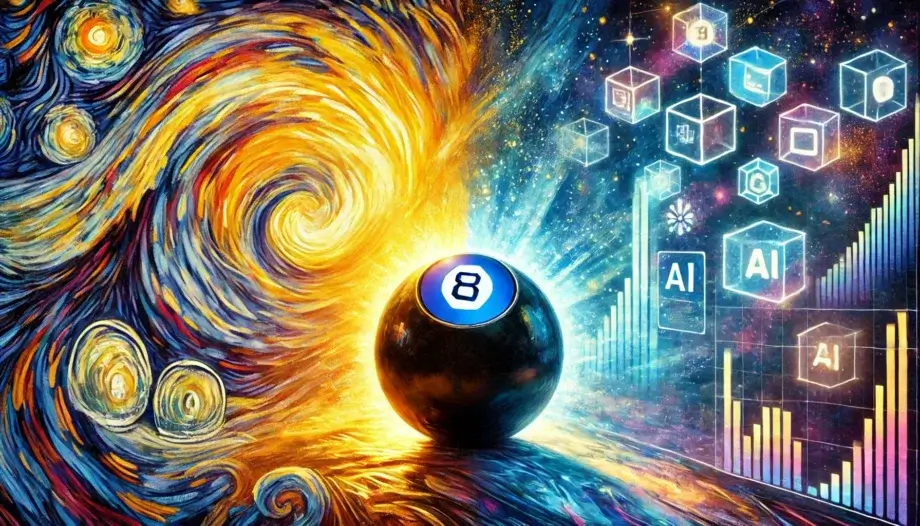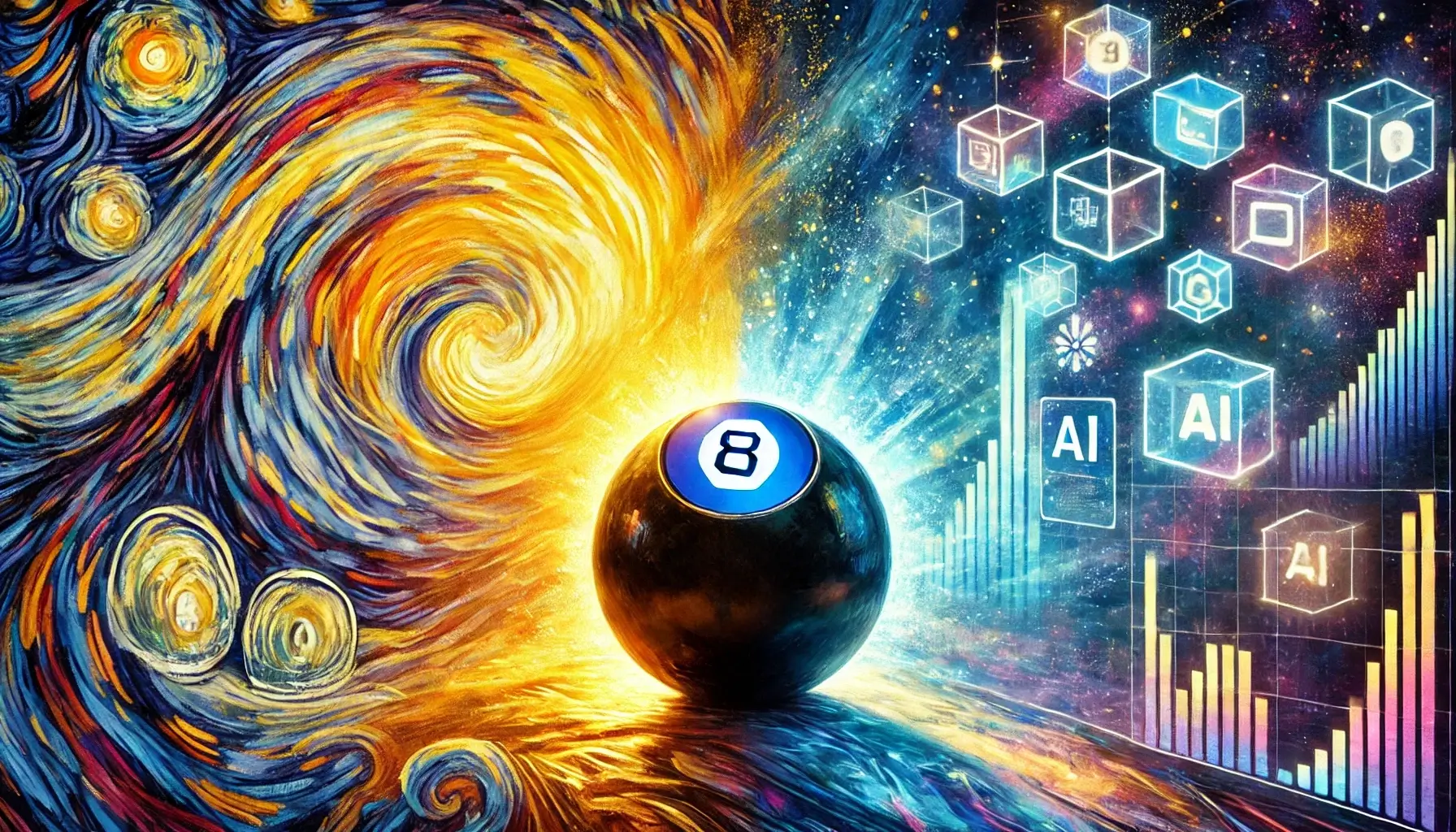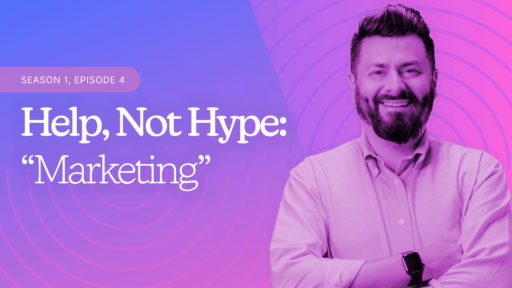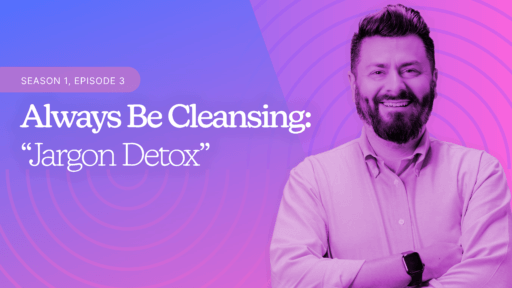“To err is human, but to really foul things up you need a computer.”
Paul R. Ehrlich
When I was a kid, I had this one toy—a Magic 8-Ball. You know the one. Ask it anything, give it a good shake, and it would spit out something cryptic like “Outlook not so good” or “Ask again later.” I was convinced this plastic orb had a direct line to the universe. It wasn’t just a toy—it was a mystical, all-knowing oracle, conveniently found in the discount bin at Kmart.
My friend Jerry and I took it very seriously. We’d ask it all the big life questions. Will I ever win the lottery? Is my teacher going to call on me today? Will I make it through another year of dodgeball unscathed? The answers weren’t always satisfying, but half the time, that little ball was dead-on. Or so I told myself. After all, I made it through dodgeball day after day—ego bruised but not entirely shattered.
Of course, looking back, I realize the Magic 8-Ball had all the predictive power of a horoscope from a cereal box. The thing only had two possible answers—yes or no. But to me, it felt like it had a direct line to the cosmos. The vague assurances of a plastic toy became my reality.
Goodbye 8-Ball, Hello AI
Fast forward to today, and—believe it or not—we’re back to asking vague questions and hoping for cosmic answers. But now, instead of shaking a plastic toy, we have AI—far more advanced, and blessedly not reliant on ink blobs. And unlike the 8-Ball, it doesn’t just spit out vague answers. It gives you real, useful guidance—and there’s no shaking required (unless you’re really frustrated with your campaign results, in which case, shake away).
Now, I get it. AI freaks people out. It’s like everyone’s collectively looking at the world and saying, “Is this going to take over everything? What about my job? My dignity? My beloved Excel spreadsheets?” It’s not just a little nervous laughter anymore; it’s full-on existential dread. And hey, I can relate. We’ve all seen The Terminator—no one’s itching to apply for a job as a personal assistant to a robot overlord. But this is where we pause for a reality check.
Not a Fad, But a Seismic Shift
Let’s be real: AI isn’t just some passing fad. We don’t want to be like the people who shrugged off the internet musing, “Email? Nah, I’ll stick to faxes, thank you very much,” only to watch the web take over the world. AI is the real deal, and it’s going to change our future. Will it impact certain jobs? Sure. Will it disrupt how we operate? Absolutely. But that’s what innovation does—it shakes things up (pun intended) and forces us to evolve. The key is how we respond. Do we treat it like the next cultural apocalypse? Or do we lean in, ready to ride the wave and shape it ourselves?
For us marketing professionals, this is a moment to celebrate, not cower. AI isn’t just a shiny new toy. It’s a seismic shift in how we approach our work. It’s not about saying, “Oh, cool, this can do some of the heavy lifting for me.” No, it’s about realizing we’re standing on the edge of something big—something that’s going to let us work smarter, dig deeper, and maybe, just maybe, get a little more sleep.
When AI Stops, Curiosity Kicks In
But here’s the part people forget: AI doesn’t replace everything. Sure, it’s great at analyzing data faster than your average marketer with a coffee IV drip, but there are still things it can’t do (well, at least not yet). For instance, it can’t be curious in the way that we are. It doesn’t have that spark of why. AI can tell you what worked in your last campaign and how to improve the next one, but it can’t sit there at 3 a.m. with you, asking the big, slightly panicked questions like, “But what if our audience secretly hates us? What if we pivoted and became a TikTok brand for dogs?”
And that curiosity? That’s our superpower. AI might crunch billions of data points in a blink, but it doesn’t wonder. It doesn’t feel the thrill of discovery, or that rush when your wild idea turns into something brilliant—or at least not immediately laughed out of the conference room. It can’t feel the satisfaction of creating something that resonates on a human level, because—well—it’s not human (again, yet).
A Partnership, Not a Takeover
What AI can do is give us space to focus on the things that make us, well, us. It takes care of the mundane, the repetitive, the please-for-the-love-of-god-make-it-stop tasks, and gives us room to be more creative, more empathetic, more—dare I say it—human. It’s a partnership, not a takeover. And while AI will absolutely change the way we do things, it won’t erase what makes our work valuable.
That’s not to say it’s all sunshine and rainbows. Any great innovation comes with a dark side. There will be growing pains. There will be moments when we feel like we’re losing control, when entire industries get reshuffled like a deck of cards at a casino that you’re pretty sure is rigged. But we’ve faced this before. The internet didn’t destroy us—it expanded us. Smartphones didn’t turn us into zombies (okay, maybe a little)—they connected us in ways we never imagined. AI will do the same, but on an even grander scale.
Steering the Future With AI
The future isn’t about shaking a Magic 8-Ball and hoping for the best. It’s about using AI to make smarter decisions, push boundaries, and create a world where the best tech amplifies the best parts of being human—like creativity and pretending to understand Excel. Yes, it’s going to change everything, but we have the power to steer that change.
So let’s not be afraid of the seismic shifts ahead. Instead, let’s embrace them. After all, we’re not just along for the ride—we’re the ones driving.






